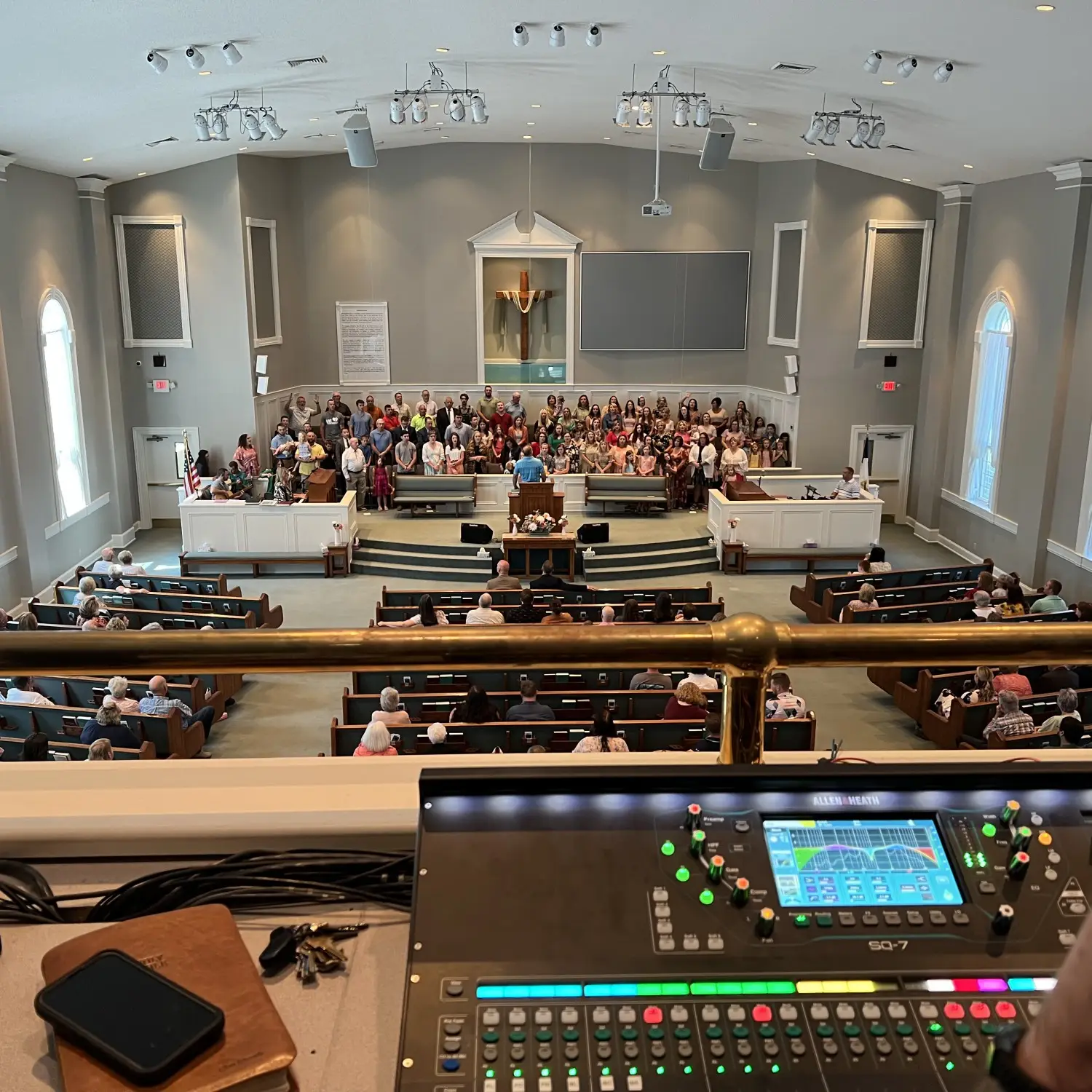AV Solutions
Church AV solutions

Solutions tailored for church settings
Effective AV solutions are key to creating a meaningful worship experience in a church. Our AV technologies are carefully customized for houses of worship, ensuring every sermon, song, and scripture is clearly delivered. From advanced church sound systems to high-quality visual technologies, each element is designed to support the spiritual atmosphere, whether for regular services or special events.

Why getting the right solutions for your church matters
Clear Audio for Every Worshipper: Even sound distribution ensures sermons and songs are heard clearly by all, enriching the worship experience.
High-Quality Visuals for Engaging Worship: Visual technology enhances engagement, from hymn lyrics to sermon visuals, connecting the congregation to the message.
Adaptable AV Solutions: Churches require flexible AV setups to accommodate different events and worship styles for the best experience.
Future-Ready Technologies: Designed to evolve with new advancements, our AV systems ensure your church can grow and expand its reach.
Make your AV goals a reality—contact us today
Whether you’re planning a new system, upgrading existing technology, or seeking expert guidance, we’re here to help. Let’s create an AV solution that delivers seamless performance and long-term success.
Consult
Design
Implement
We keep AV integration simple
Managing an AV project can be complex, but our streamlined process ensures a smooth experience. We stay focused and on task with three key steps:
AV services we provide
Explore our wide range of professional AV services, from initial consultation to installation and support, designed to bring your vision to life.
Locations we serve
Find out how our team serves businesses and organizations in your area, providing local expertise and support.

Types of AV equipment we support
Have questions? We have answers.
If you need more information, don’t hesitate to reach out—our team is happy to assist.
AV solutions bring sermons, music, and multimedia to life, helping worshippers feel more connected. Clear audio ensures every word is heard, while engaging visuals make messages more impactful. With intuitive controls, churches seamlessly transition between service elements for a more immersive experience.
Good sound is key to a great worship experience. It’s important to have high-quality audio mixers, well-placed speakers for even coverage, and acoustic treatments to minimize echoes. The goal is to ensure that everyone—whether sitting in the front row or the back—can hear clearly and comfortably.
Yes! Churches have different needs, whether it’s a traditional service, a contemporary worship session, or a special event. AV systems can be designed to adapt, making it easy to switch between setups and ensure everything runs smoothly, no matter the occasion.
Every church space is different, and older or larger buildings often come with acoustic challenges like echoes and uneven sound. We assess the layout, fine-tune speaker placement, and use acoustic treatments where needed to create clear, balanced audio that reaches everyone in the congregation.
Like any technology, AV systems need regular upkeep to stay reliable. Simple steps like software updates, equipment checks, and occasional recalibrations can make a big difference. RYGID AV offers maintenance plans and ongoing support so your system stays in top shape, service after service.
Where to Contact + Connect with RYGID AV
Mooresville, NC 28117







